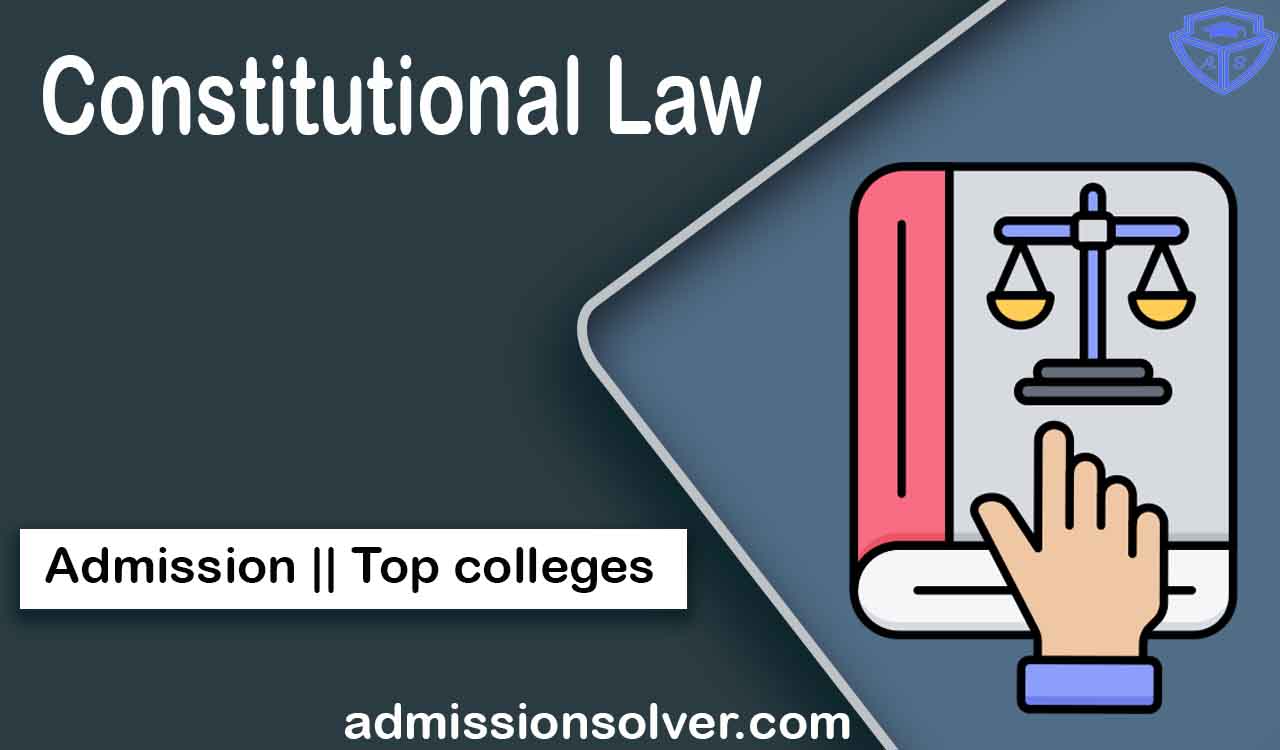Constitutional Law is the foundation of any legal system, governing the structure, functions, and powers of the government while protecting the rights and freedoms of individuals. This specialized field of law plays a crucial role in shaping a nation’s legal and political framework, ensuring justice, democracy, and the rule of law.
What is Constitutional Law?
Constitutional Law refers to the body of legal principles and doctrines that define the organization of the state, the distribution of powers among government branches, and the fundamental rights of citizens. It serves as the supreme legal authority, guiding the functioning of legislative, executive, and judicial bodies while safeguarding civil liberties.
Why Specialize in Constitutional Law?
A specialization in Constitutional Law offers numerous benefits:
- Deep Understanding of Governance: Provides expertise in the fundamental principles governing a nation.
- Diverse Career Paths: Opens opportunities in litigation, academia, government advisory, and policy-making.
- Impactful Legal Practice: Allows lawyers to advocate for human rights, civil liberties, and constitutional reforms.
- Judicial and Legislative Influence: Specialized lawyers contribute to the interpretation and amendment of constitutional provisions.
Check Also
| Find the Best Colleges and Courses which is perfect for you |
| More course details |
Key Areas of Constitutional Law
Constitutional Law covers several critical aspects, including:
1. Fundamental Rights and Freedoms
- Protection of civil liberties such as freedom of speech, religion, and equality.
- Enforcement of rights through constitutional remedies like writ petitions.
- Role of the judiciary in interpreting fundamental rights.
2. Structure and Functions of Government
- Separation of powers between the executive, legislature, and judiciary.
- Federalism and distribution of powers between central and state governments.
- Constitutional checks and balances.
3. Judicial Review and Interpretation
- Role of courts in reviewing laws and government actions for constitutional validity.
- Landmark Supreme Court judgments that shaped constitutional principles.
- Evolution of constitutional doctrines through legal precedents.
4. Constitutional Amendments and Reforms
- Process of amending the Constitution to reflect societal and political changes.
- Major constitutional amendments and their impact.
- Role of constitutional commissions and committees in legal reforms.
5. Election and Political Laws
- Regulations governing electoral processes and political representation.
- Rights and responsibilities of political parties and candidates.
- Legal challenges in election disputes and governance.
Top Constitutional Law Courses and Certifications
Several prestigious institutions offer specialized courses in Constitutional Law, including:
- Harvard Law School – LLM in Constitutional Law
- University of Oxford – Advanced Constitutional Studies Program
- National Law School of India University (NLSIU), Bangalore – LLM in Constitutional and Administrative Law
- London School of Economics (LSE) – Constitutional Law and Human Rights Program
- Coursera & edX – Online Constitutional Law Certification Programs
Career Opportunities in Constitutional Law
A specialization in Constitutional Law can lead to various influential career paths, such as:
- Constitutional Lawyer – Representing clients in constitutional and human rights cases.
- Legal Advisor to Government – Assisting in drafting and interpreting constitutional policies.
- Public Policy Analyst – Shaping government policies through legal research and analysis.
- Judicial Services and Litigation – Pursuing a career as a judge, advocate, or legal consultant.
- Academic and Researcher – Teaching Constitutional Law and conducting legal research.
- Human Rights Advocate – Defending civil liberties and promoting social justice.
FAQs About Specialized Constitutional Law
What qualifications are needed to specialize in Constitutional Law?
A law degree (LLB) followed by an LLM in Constitutional Law or related fields is recommended.
Is Constitutional Law a good career choice?
Yes, it offers opportunities in legal practice, governance, policy-making, and academia.
Can Constitutional Law be applied internationally?
Yes, constitutional principles influence international legal frameworks and human rights laws.
What industries require Constitutional Law professionals?
Legal firms, government agencies, courts, NGOs, think tanks, and universities frequently require experts in Constitutional Law.
What is the salary range for Constitutional Law professionals?
Salaries vary based on experience and location, but constitutional lawyers in India typically earn between ₹8-25 LPA, with higher earnings in judicial and government roles.
Conclusion
Specialized Constitutional Law is a dynamic and impactful legal field that shapes a nation’s governance and legal structure. As constitutional challenges and reforms continue to evolve, the demand for skilled constitutional lawyers remains strong. If you are passionate about justice, democracy, and legal governance, specializing in Constitutional Law can be a rewarding and influential career choice.
